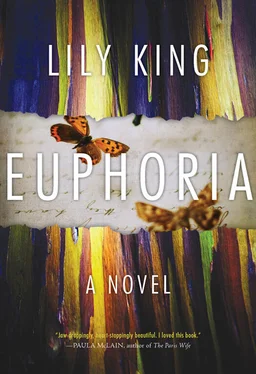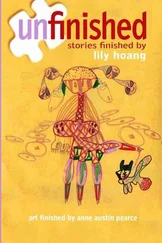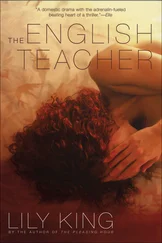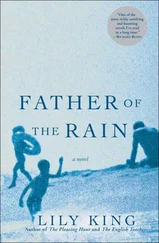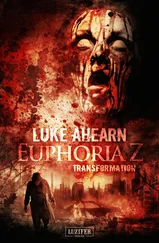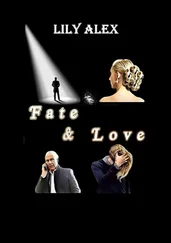A tall brooding slightly unhinged Englishman is bound to capture the romantic imagination of some girl, and there was one from Shropshire who followed me around for a week or so, but she came to understand that my dark silences were never going to bloom into confessions of love, and took up with an Irish soldier.
My boat pulled in and out of Colombo, Bombay, Aden. A day out from Suez, I discovered the notes from our Grid stuffed into a corner of one of the suitcases. I had no memory of putting them there. In fact I was certain I hadn’t. I smoothed them all out on the walnut desk in my stateroom. It was the work of madness, the oily crumpled pages covered in three different scrawls, but I was mad still, and set to work. I wrote the monograph quickly, faster than I’ve ever written anything. They were both there with me as I wrote, both of them, advising me, heckling me, contradicting me, mocking me, and, finally, approving. I wrote with more conviction than I’d ever had in my life about anything. I wanted to get it right for her, wanted to hold on to those moments on Lake Tam in any way I could. I thought the writing would last the rest of the journey, but I was done by Genoa and posted it from there. I had signed all three of our names to it.
Oceania took it for their next issue, and it was included in several anthologies published the following year. The Grid, for a time, became a staple in classrooms in several countries. In 1941 though I learned that Eugen Fischer in Berlin had included its German translation in the reading lists he created for the Third Reich. He had added a coda, claiming Germans to be Northern, the unyielding Northern temperament to be superior, and our Grid to be further proof of the necessity of the Nazi racial hygiene program. That the monograph was in the company of works by Mendel and Darwin was cold comfort. If I had not known of this list, perhaps I would not have been so willing to offer up my knowledge of the Sepik for the purpose of war when the OSS contacted me, perhaps I would not have helped to rescue those three American spies in Kamindimimbut. And perhaps that entire Olimbi village would not have been slaughtered. So much, in the end, for all my attempts at amends.
After Genoa we stopped in Gibraltar and, finally, Liverpool.
Strange how you can pick out in a crowd, from a distance of eighty yards and two and a half years, the one familiar shape, the slant of white hair, the hands covering the mouth.
All those tough, no-nonsense letters, threats of disinheritance, lectures on the necessity of hard science, and my mother was heavy and sobbing in my arms.
‘She never thought you’d make it back,’ her friend who’d driven her up to Liverpool explained. ‘She had terrible dreams.’
I wasn’t much better than a pole, holding my mother up on that packed quai as all those passengers I never met bumped past us on their way into other arms. I had spoken only to the ocean for forty-seven days, hadn’t slept since Sydney. My mother took ahold of herself, told me I looked awful, and led me to her friend’s automobile, where she sat with me in the backseat and held my hand. I hadn’t written her a word of what had happened, yet she seemed to know it all. The tar and soot smell of England was back in my nostrils, the cold damp already settling in my bones. The SS Vedic was lit up now in the dusk. Morning after next it would begin its passage without me across another swath of emptiness to New York. Through the windscreen I had a last look at the sea, which was rumpled and agitated, a thick muscle that would hold on tight to everything it swallowed.
I have only been to America once. It is not easy to avoid the place, but for years I managed it. I declined invitations, turned down teaching posts. But when they sent me the announcement of the opening of the Peoples of the Pacific Hall at the American Museum of Natural History in the spring of 1971, which had a photograph of a ceremonial house on the front and a quote from my most recent book about Kiona below it, I felt obliged to make the journey.
I was given a private viewing before the event. Viewing me and my responses as we padded along on carpeted floors were the director of the museum, the president of its board, and several big donors. There were Balinese shadow puppets, a Maori pataka, Moro armor. There was a diorama of a Solomon Island village with a copy of The Children of Kirakira on a shelf behind it, overlooking the scene like a god.
‘And here,’ said the director as we turned a corner, ‘is your particular part of the world.’ It surprised me, a whole large annex devoted to the Sepik River tribes. Years earlier I’d donated my few Kiona-made possessions to the museum, never expecting to see them again, and there they all were now, pinned and labeled and under glass like Aunt Dottie’s beetles: my painted coconut cups, my stick and snail navigational chart, my shell money, the few clay figures given to me upon my departure. The pages from a November 1933 issue of Oceania containing the monograph about the Grid was under glass as well, torn to shreds as I had requested. Beside it was a placard noting the serendipity of the monograph’s three authors having met in Angoram on Christmas Eve, 1932, our theory’s misappropriation by the Nazis, my subsequent refusal of all reprinting requests, and my entreaties that it be permanently removed from all syllabi around the globe. According to the synopsis, those efforts had only enhanced its popularity. Beside the shredded Oceania article were my books and the book Nell’s publisher had shaped from Nell’s New Guinea notes, which was even more successful than her first. Another placard gave an account of Nell’s death at sea, Fen’s disappearance, and my long career. Though the museum had no Sepik artifacts directly from Nell or Fen, a young anthropologist had recently retraced their steps and brought back a number of items from the Anapa, Mumbanyo, and Tam.
Fen had indeed vanished. No one I know has heard from him in all these years. The only person ever to claim a sighting was Evans-Pritchard, who thought he saw him on the Omo River in Ethiopia in the late thirties, but when he called out Fen’s name, the man flinched and moved swiftly away.
Tears are not endless , I repeated to myself. That was how I made the long walk past these display cases, past an enormous blowup of the photograph Fen had taken of Nell and me with my big suitcase and his pipe and hat and sago fronds across our shoulders. I kept us moving swiftly. It was the only way to get through it. I paused, however, when I got to a Tam death mask. Mud had been smoothed on top of the bone to refashion the face, hair taken from a living head and glued on top. The mud had dried beige, and white warrior stripes were painted down the nose and across the cheeks and around the lips. In the socket of each eye was a small oval cowrie shell, underside up, the long slit with its toothed edges making an excellent likeness to a shut eye with lashes. Five more cowrie shells were placed across the forehead like a crown. It was this line of shells that caught my eye. Something irregular. The one in the middle was bigger, not a shell in fact but a button, a perfectly round ivory button embedded in this mud forehead. I reached for it. My hand slammed into the glass. It did not shatter, but it made a loud bang, which was followed by a sudden silence all around me.
‘See someone you know in there?’ one of the donors said, and the others laughed nervously.
Caught in the holes of the button were tufts of pale blue thread. I forced myself on to the next display. It was only a button. It was only a bit of thread. From a wrinkled blue dress I had once undone.
Читать дальше
